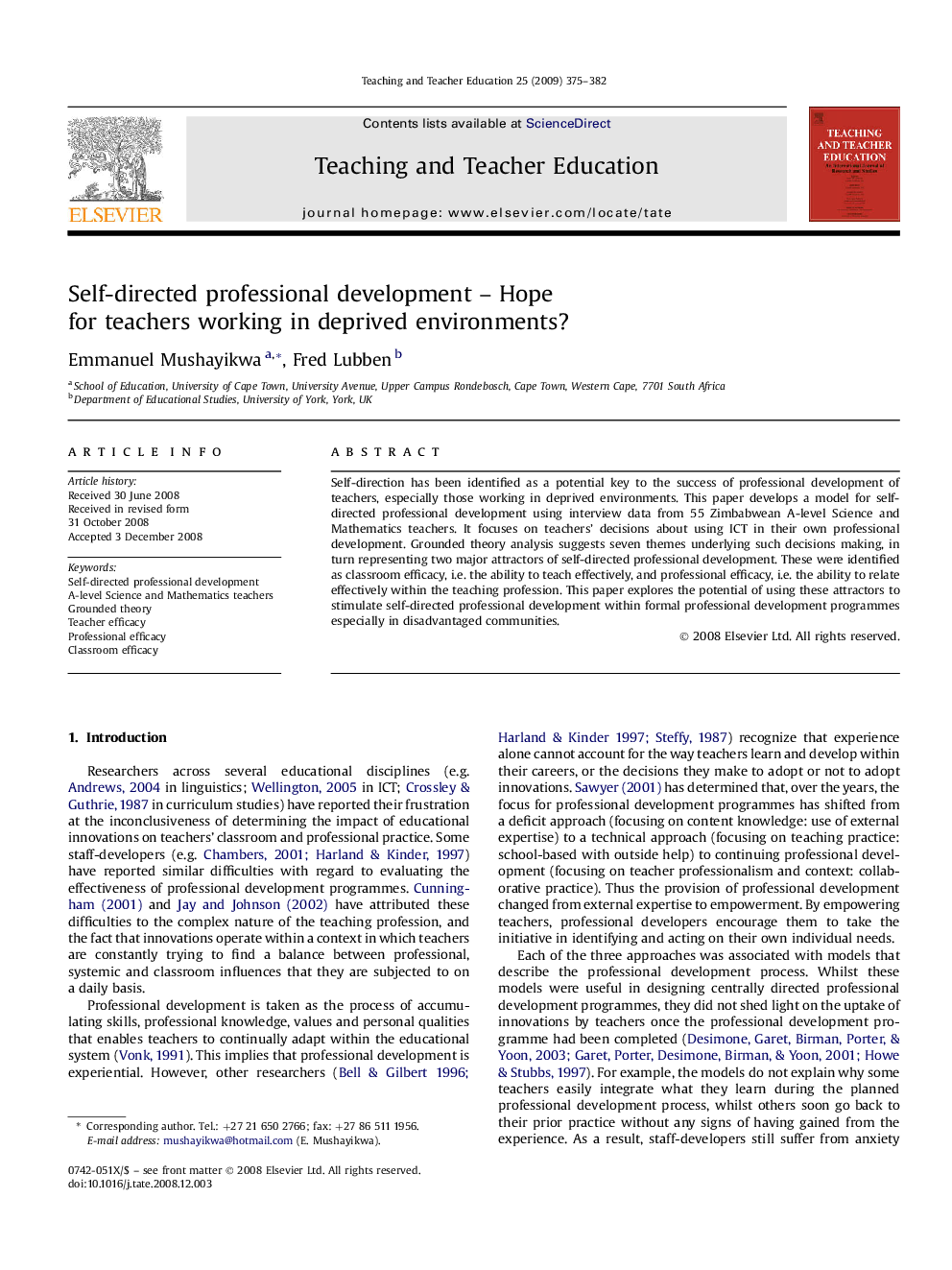| Article ID | Journal | Published Year | Pages | File Type |
|---|---|---|---|---|
| 374852 | Teaching and Teacher Education | 2009 | 8 Pages |
Self-direction has been identified as a potential key to the success of professional development of teachers, especially those working in deprived environments. This paper develops a model for self-directed professional development using interview data from 55 Zimbabwean A-level Science and Mathematics teachers. It focuses on teachers' decisions about using ICT in their own professional development. Grounded theory analysis suggests seven themes underlying such decisions making, in turn representing two major attractors of self-directed professional development. These were identified as classroom efficacy, i.e. the ability to teach effectively, and professional efficacy, i.e. the ability to relate effectively within the teaching profession. This paper explores the potential of using these attractors to stimulate self-directed professional development within formal professional development programmes especially in disadvantaged communities.
